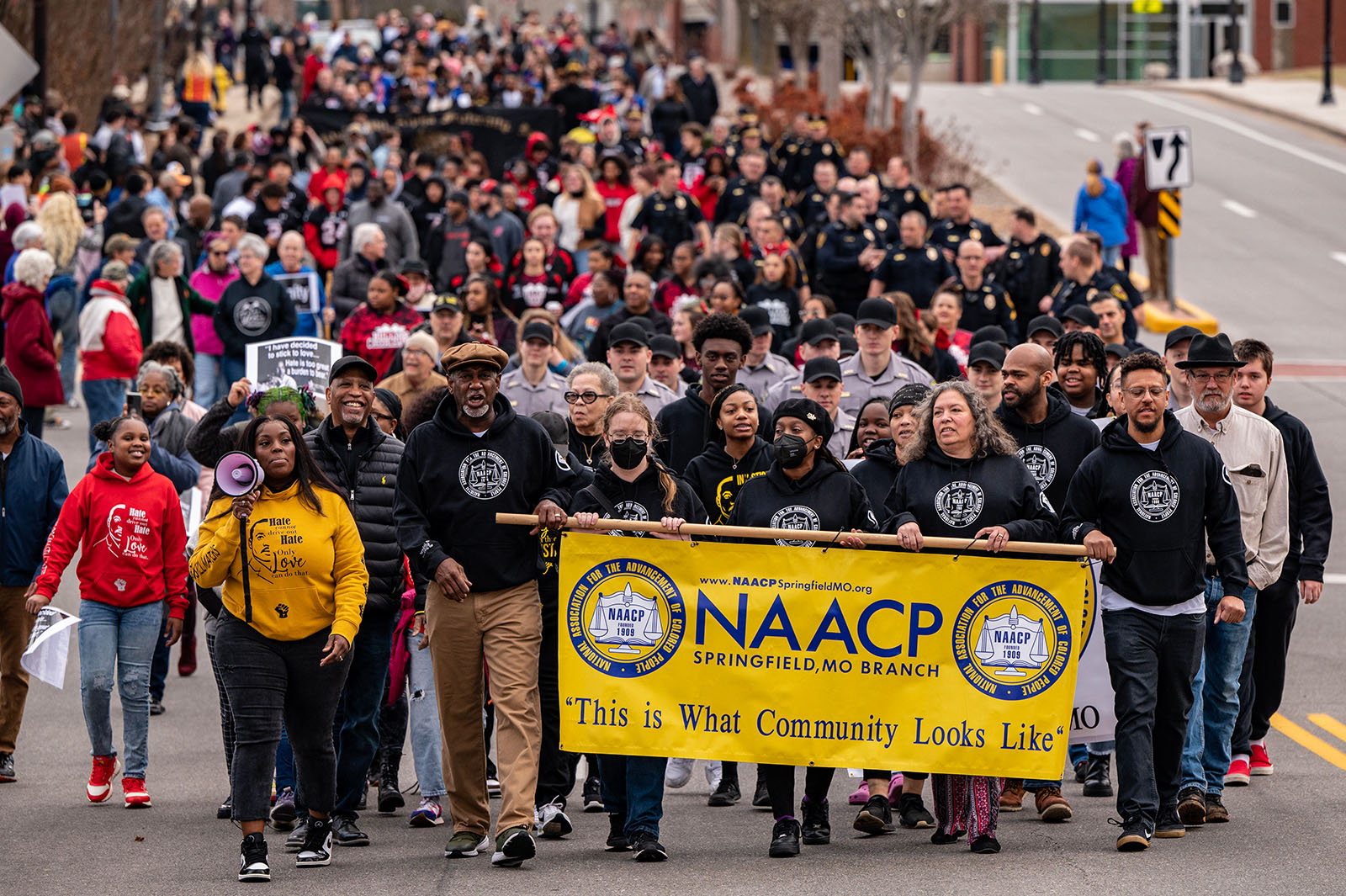OPINION |
For years, I have volunteered to cover the Martin Luther King Jr. march here in Springfield. I did it for several years at the News-Leader and I did it Monday for the Hauxeda.
It's an inspiring event organized by the Springfield Chapter of the National Association for the Advancement of Colored People.
Each year, when the event ends at the Gillioz Theatre, I leave feeling the way I do when I exit church after a great sermon that makes me feel I can be a better person and we can be a better nation than we are today.
I believe hope is contagious and a far more powerful antidote to despair when shared.
‘Hate is too great a burden to bear'
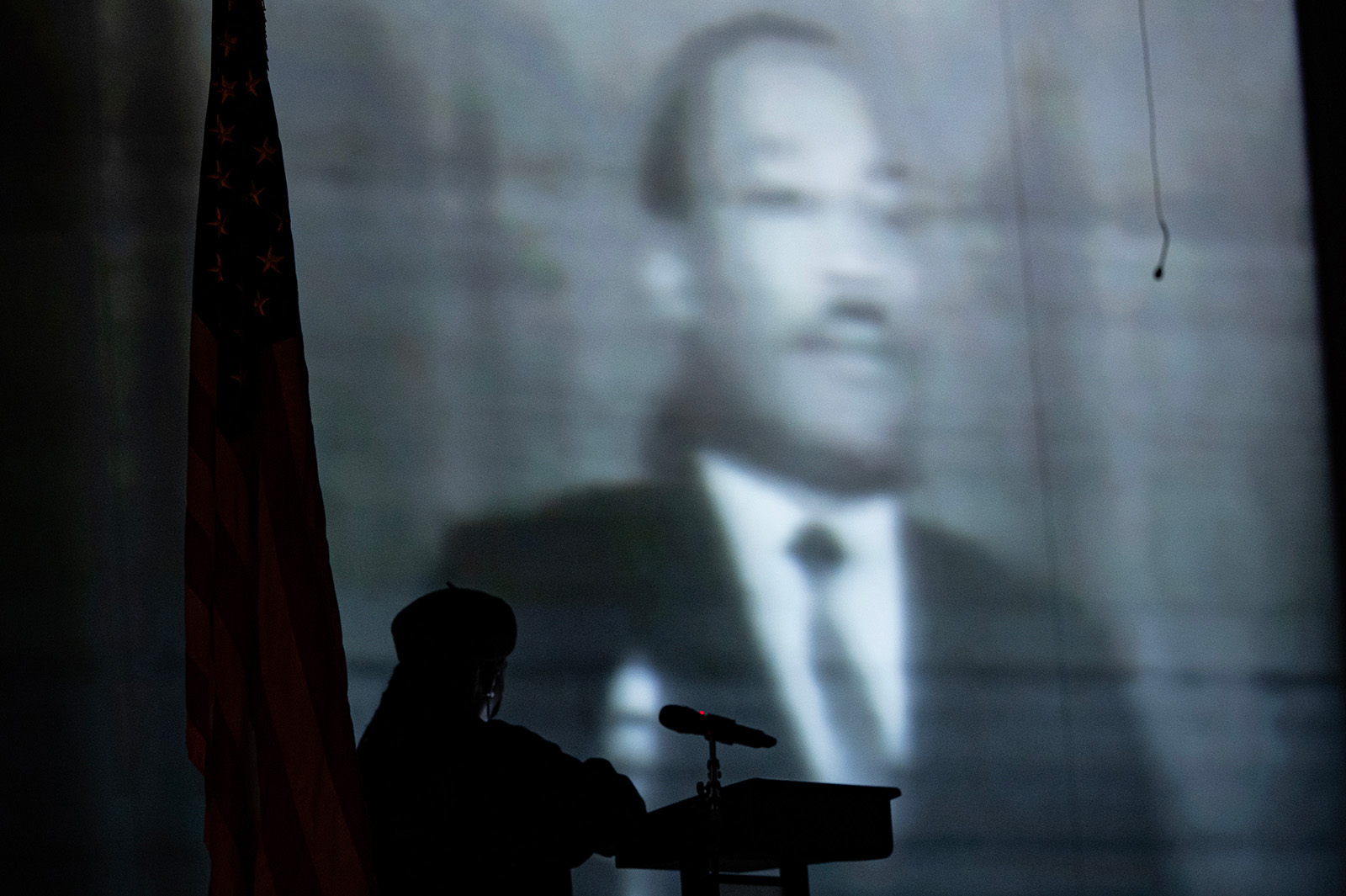
Of course, some of the most inspiring words crafted in the history of humankind are reprised and shared at the annual Springfield march
Those would belong to the Rev. Dr. Martin Luther King Jr., a fearless civil rights leader assassinated in 1968, in Memphis. He was 39.
Let's start with his words featured this year:
“I have decided to stick with love. Hate is too great a burden to bear.”
‘If you can't fly then run'
Several hundred marched Monday. It was an impressive turnout that, I'm sure, had something to do with temperatures in the 50s.
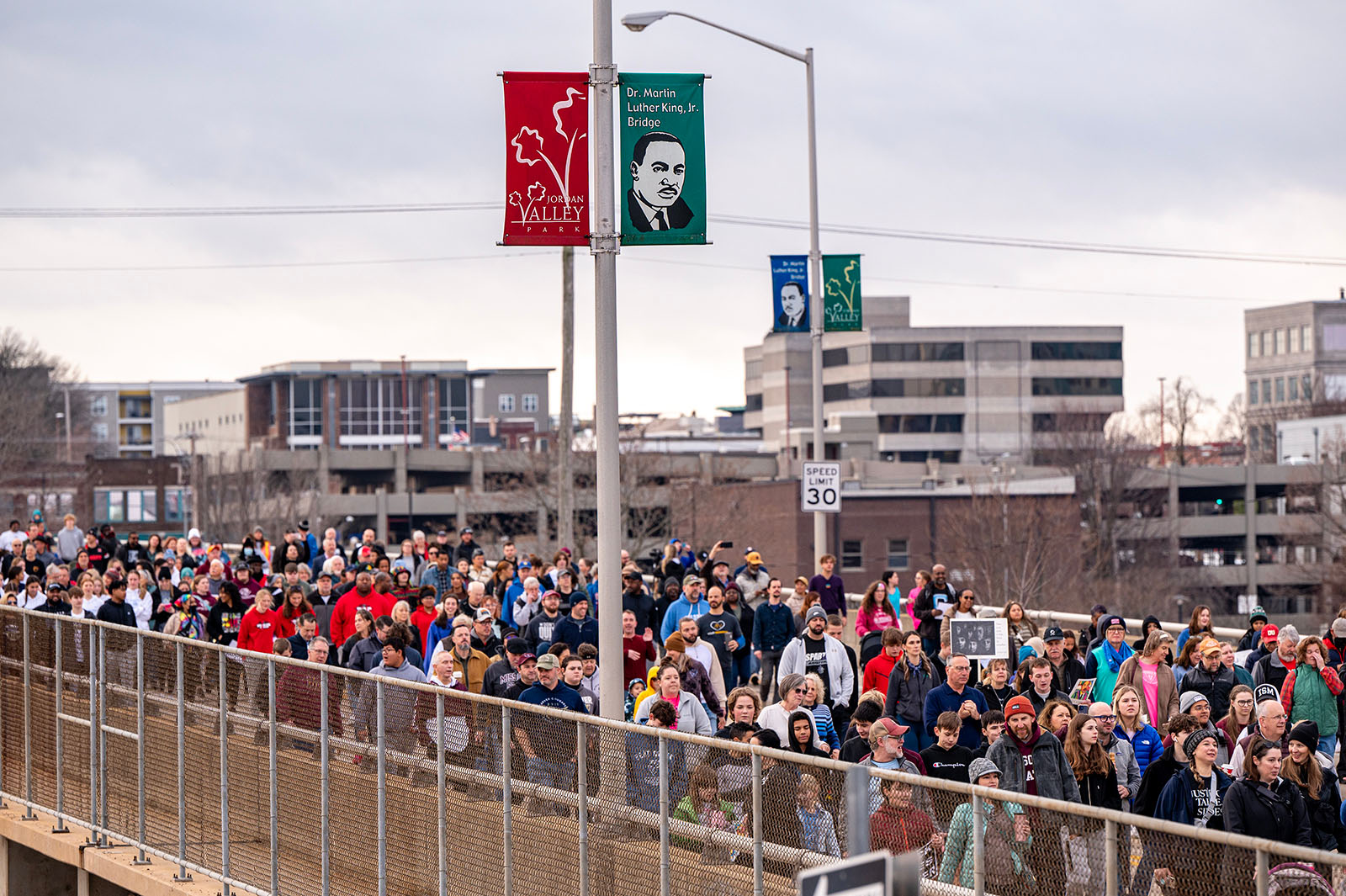
The march is about a half-mile, and I don't believe anyone carried the burden of hate.
Hate is for the Bull Connors of the world. Connor is the white supremacist politician in Birmingham, Alabama who ordered that fire hoses and police dogs assault the 1963 marchers, including children.
I saw something Monday as I walked across the Martin Luther King Jr. bridge that made me think of other words spoken by King.
“If you can't fly then run, if you can't run then walk, if you can't walk then crawl, but whatever you do you have to keep moving forward.”
I was at the rear of the march when I saw a man in a wheelchair. His hand fluttered as he tried to control it long enough to get his wheelchair over the crest in the bridge.
And if you can't crawl ... get out there in your wheelchair.
Why is this march important to you?
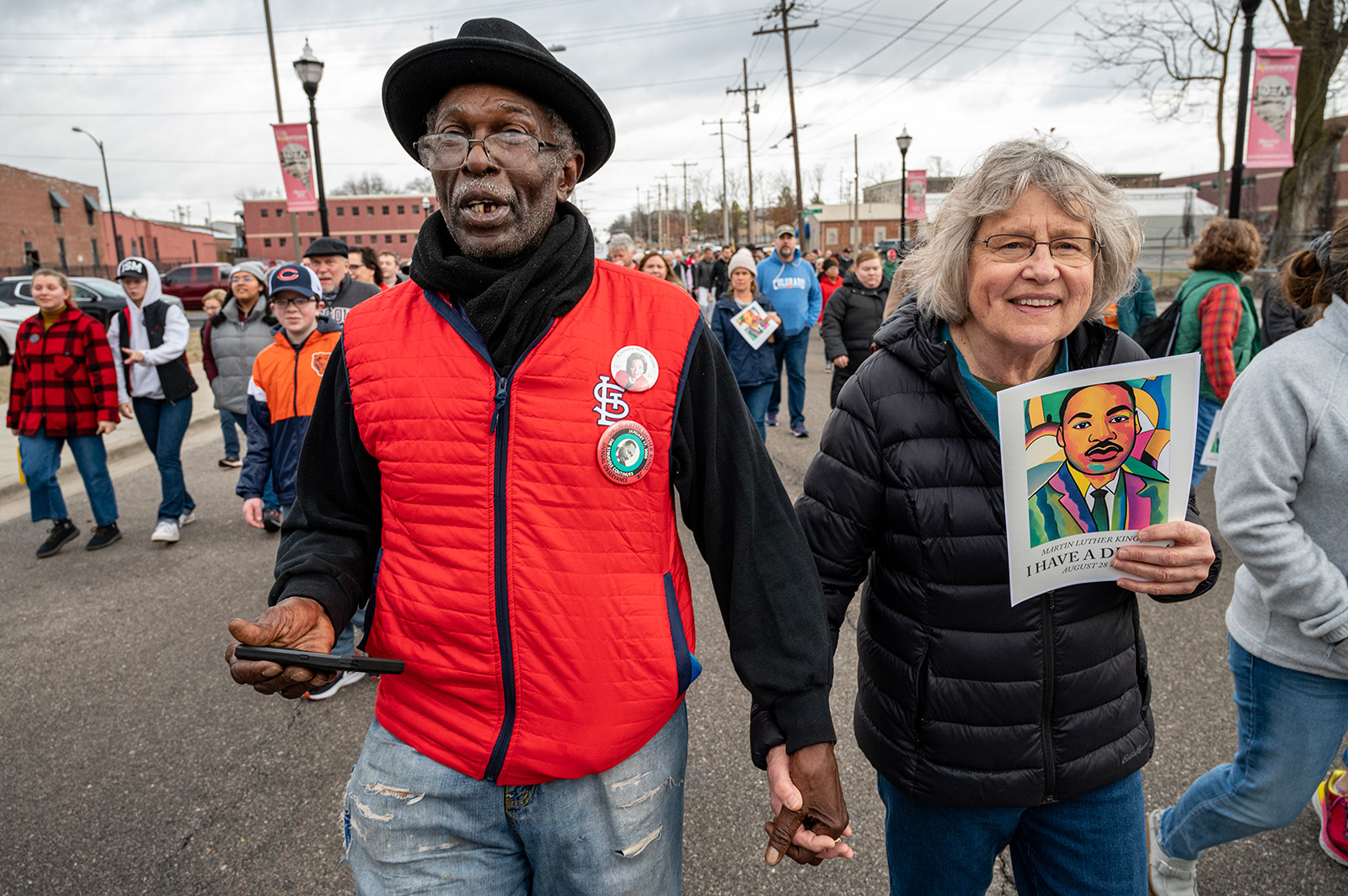
Every year when I cover the march, I try to talk to various people, different ages and different races, but I ask pretty much the same questions:
Why are you here today? Why do think this march is important?
I am grateful as a reporter that I have not had to ask marchers, for example, about a recent racially motivated death or killing or assault that has polarized our city.
Race relations nationally?
The Rev. T. J. Appleby, 65, pastor of Sanctuary of Praise Church of God in Christ, led the marchers in prayer.
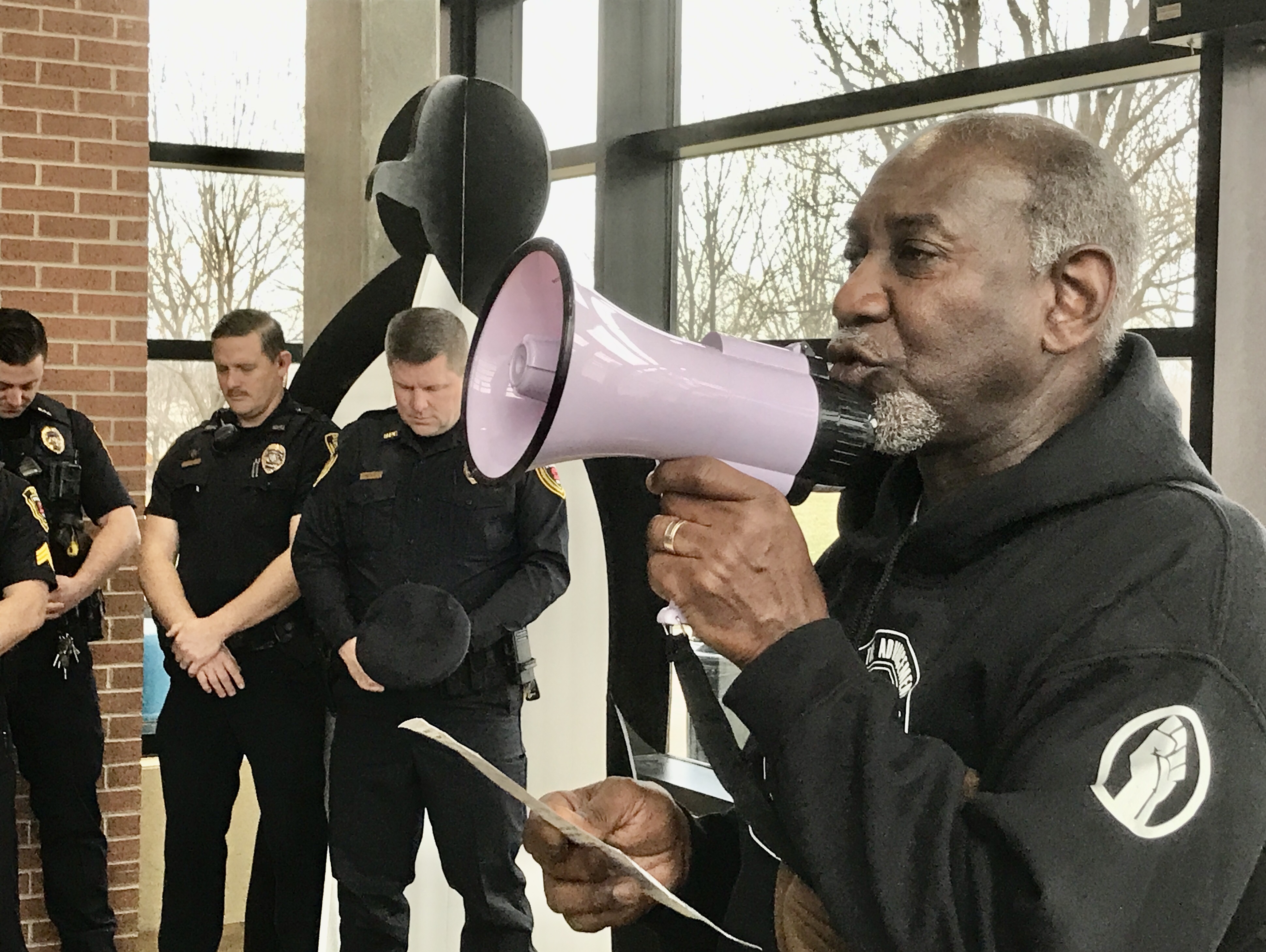
He thanked God for in 1929 sending “into our world a great freedom fighter.”
“I want to keep the dream alive that Dr. King had,” Appleby tells me. “I want to commemorate his legacy.”
I ask: How are race relations progressing nationally?
Nationally, he says, they are going in the wrong direction.
“Ever since the election in 2016 — and the reaction to that. Look at the growing number of attacks on Asian Americans.”
Race discussions that go to ‘heart of matter'
And how are they progressing here in Springfield?
“I think they are getting better here because you have been seeing more activism,” he says.
What is the relationship in Springfield between people of color and law enforcement?
“There have been discussions that go right to the heart of that,” he tells me.
“The trust factor is at an all-time high in relation to the police and sheriff's department,” he says.
“I think we have gotten some marginal gains. We still have a ways to go.”
Related post
PHOTOS: Hundreds march in Springfield on Martin Luther King Jr. Day
Hundreds of attendees marched to the Gillioz Theatre in downtown Springfield Monday to gather for Martin Luther King Jr. Day
Many of the marchers are teenagers
Tyler Thompson, 16, is a junior at Parkview High.
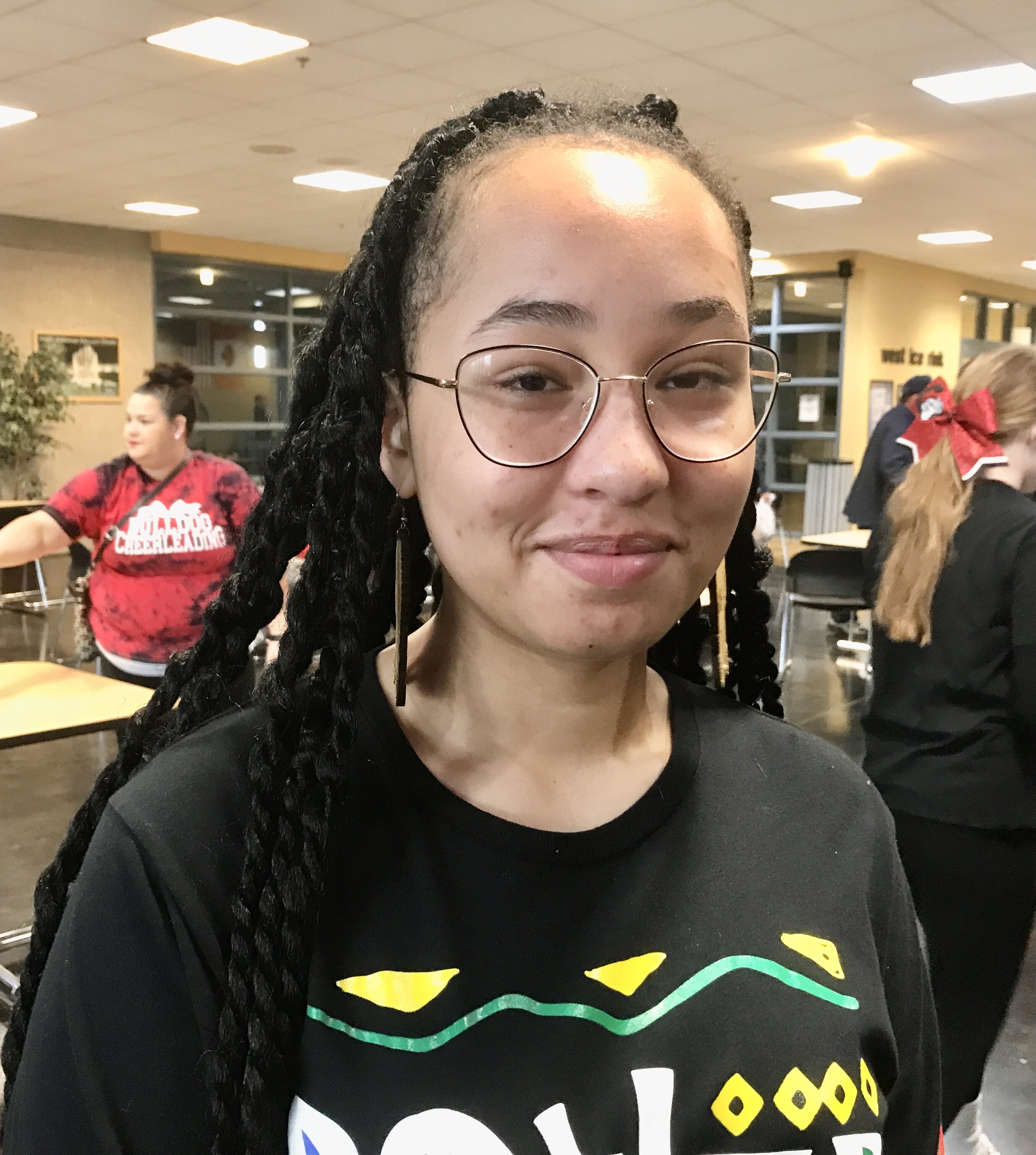
“I am here because I want things to be different,” she says. “And if we want things to be different we have to do something about it.”
Many marchers are teenagers. Quite a few wear their cheerleader outfit or football jersey.
Rowen Hart, 15, plays football at Central High. He is a sophomore.
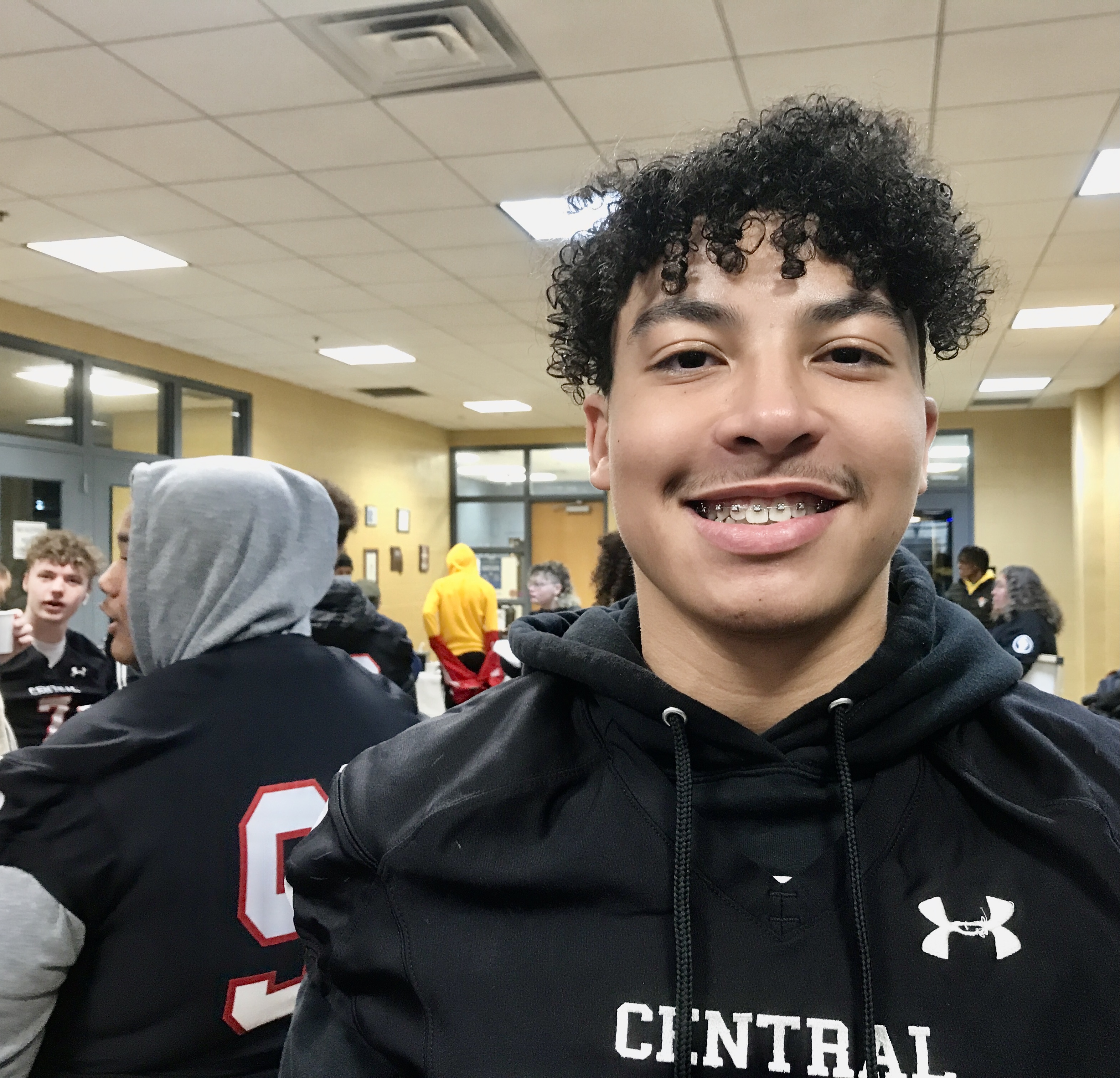
He's here, he says, because coach Shem Johnson suggested the team participate.
Hart says he's glad he did.
Let's follow the young people
Vearl Gibbs, of Springfield, is 60. She notices the young people present.
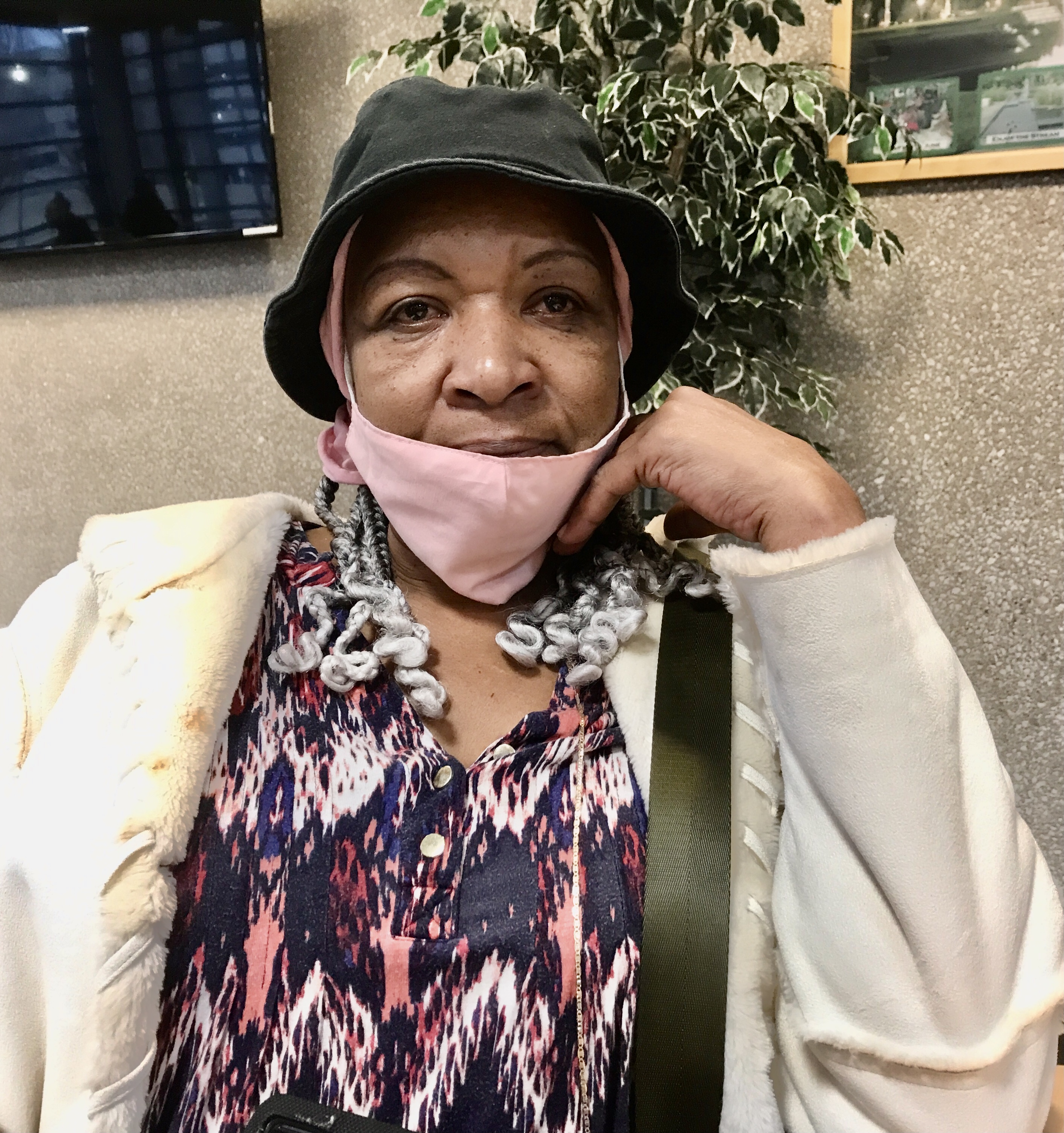
“I think it is important to support the youth that are trying to keep a legacy going,” she tells me. “The young people are doing it — so let's follow them.”
Gibbs believes much of the racism of today is, in her words, “more undercover.”
“It isn't that their hearts and minds have changed, it's because laws have changed.”
Jasmine Allen, 37, of Springfield, is a special education teacher within Springfield Public Schools.
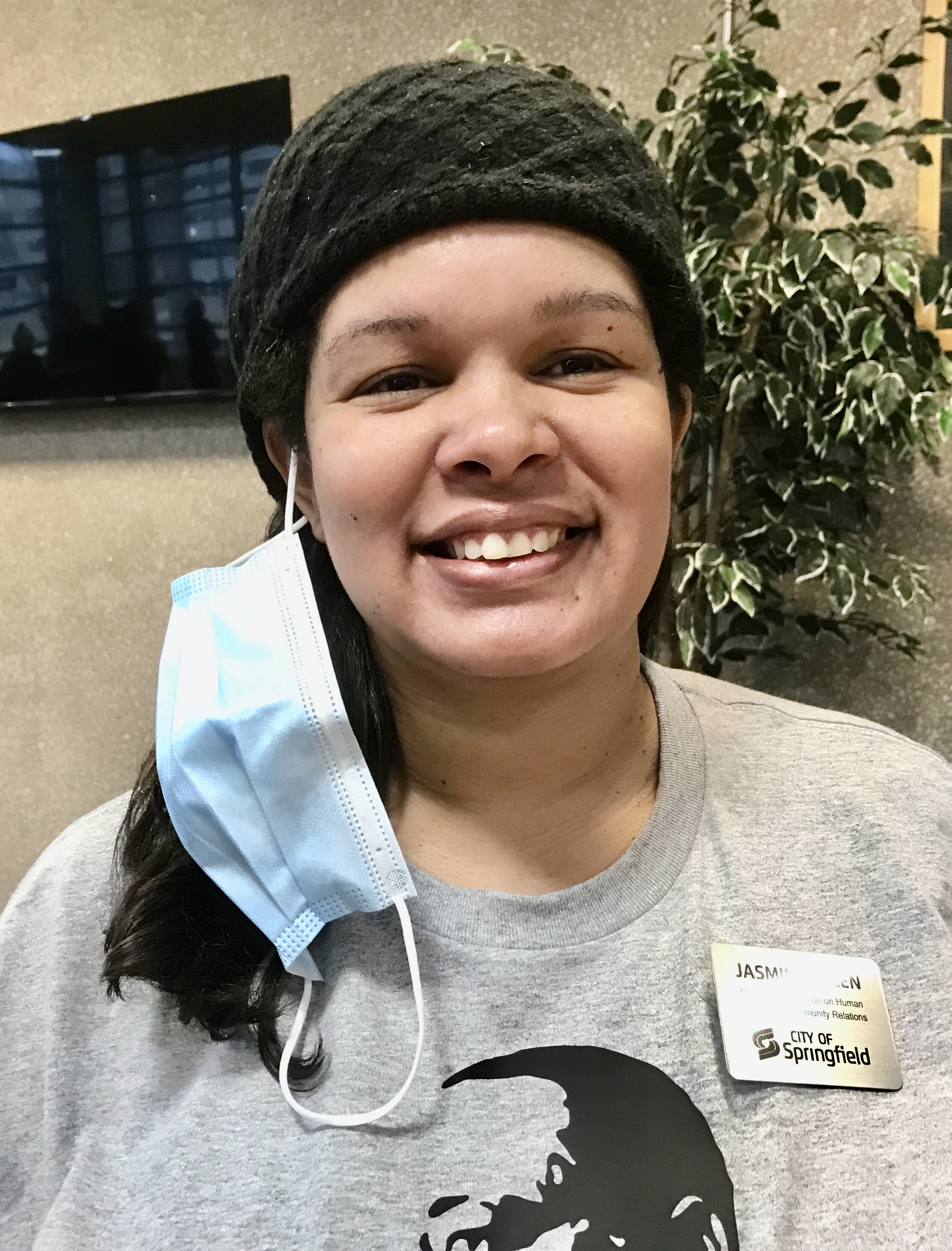
Progress in race relations, she says, has been slow.
Allen, a member of the Mayor's Commission on Human Rights and Community Relations, is at the march with her daughter Amira, 12.
“I am here to support Dr. King,” Amira says. “He is the one who led the marches and I think it is a good thing to keep his things going.”
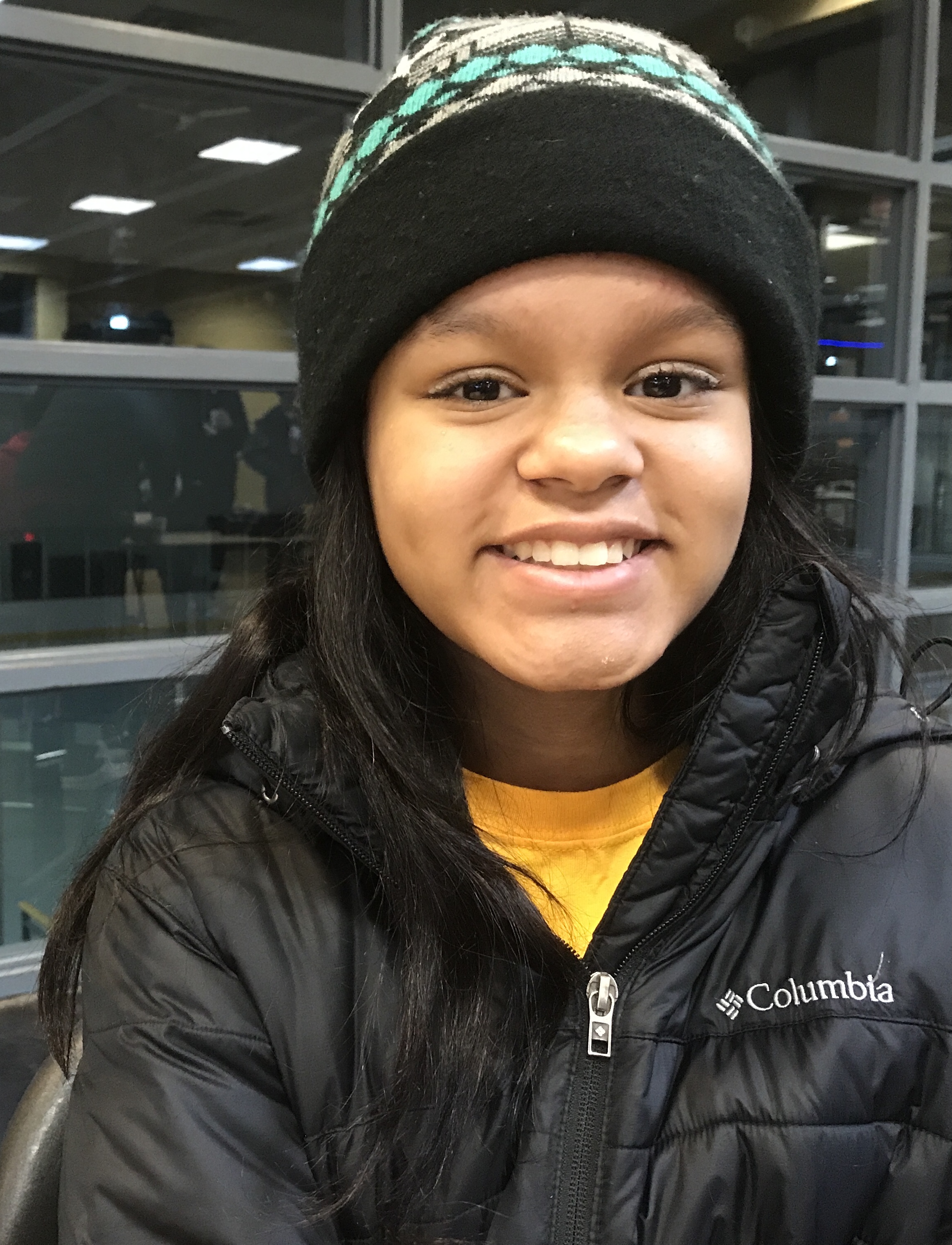
Marcher grateful King opposed Vietnam war
Tom Boldt, 71, grew up in California. He has lived in Springfield since 2019.
“Dr. King died just before my 17th birthday,” he says.
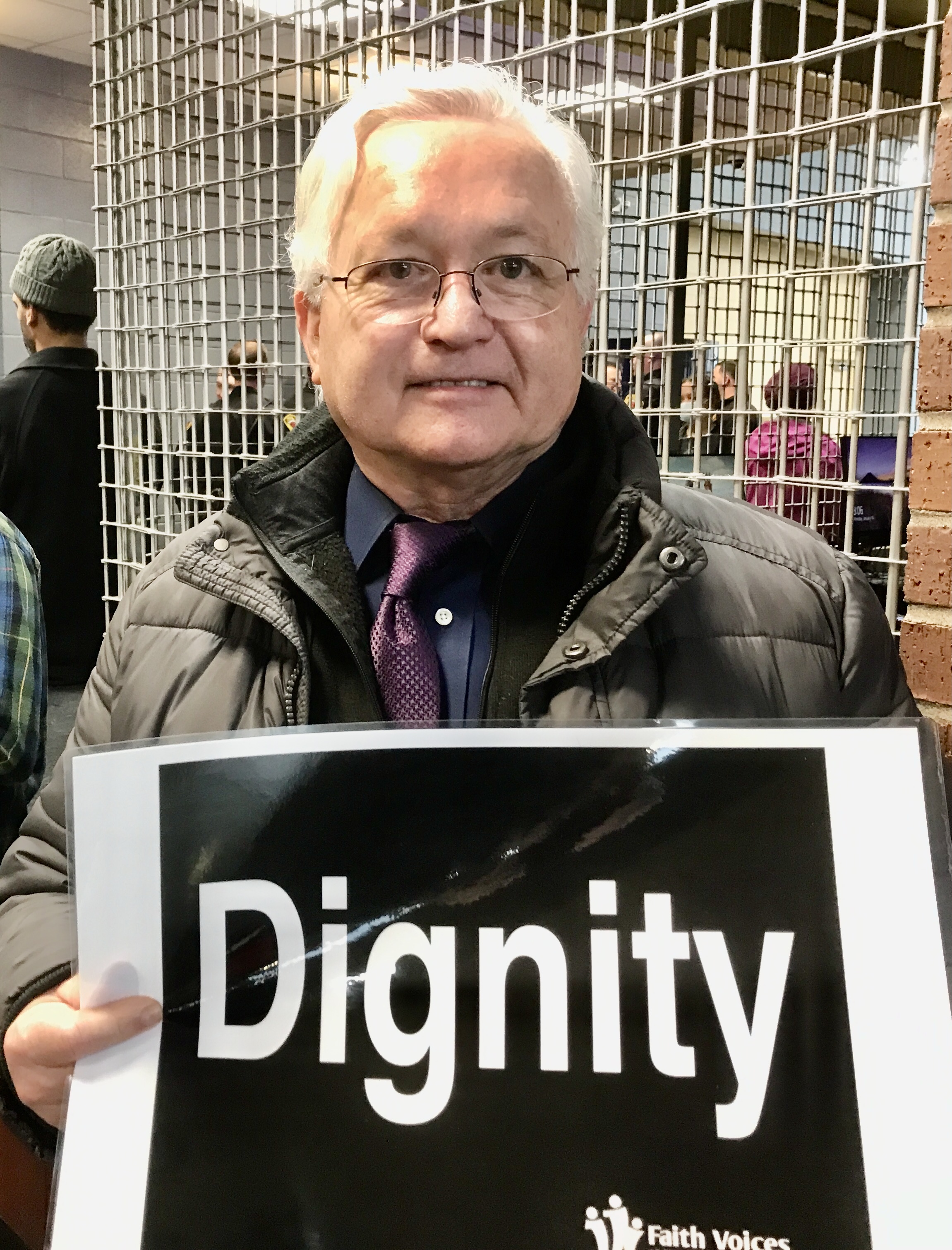
Boldt admires King not only for his leadership in civil rights but also for his opposition to the war in Vietnam
The marching part of the day ends at the Gillioz Theatre, where the program then begins.
It features children's choirs and a stirring recitation of King's “I Have a Dream” speech by Dr. Richard Todd Payne, assistant professor of voice at Missouri State University.
Kai Sutton, president of the Springfield Chapter of the NAACP, urges everyone to vote. She thanks sponsor Central Bank and the many performers and hundreds of participants.
I ask her: How did it go today?
“It went perfect, amazing,” she tells me. “We are grateful and thankful. It was just what we expected — and more.”
This is Pokin Around column No. 89.


